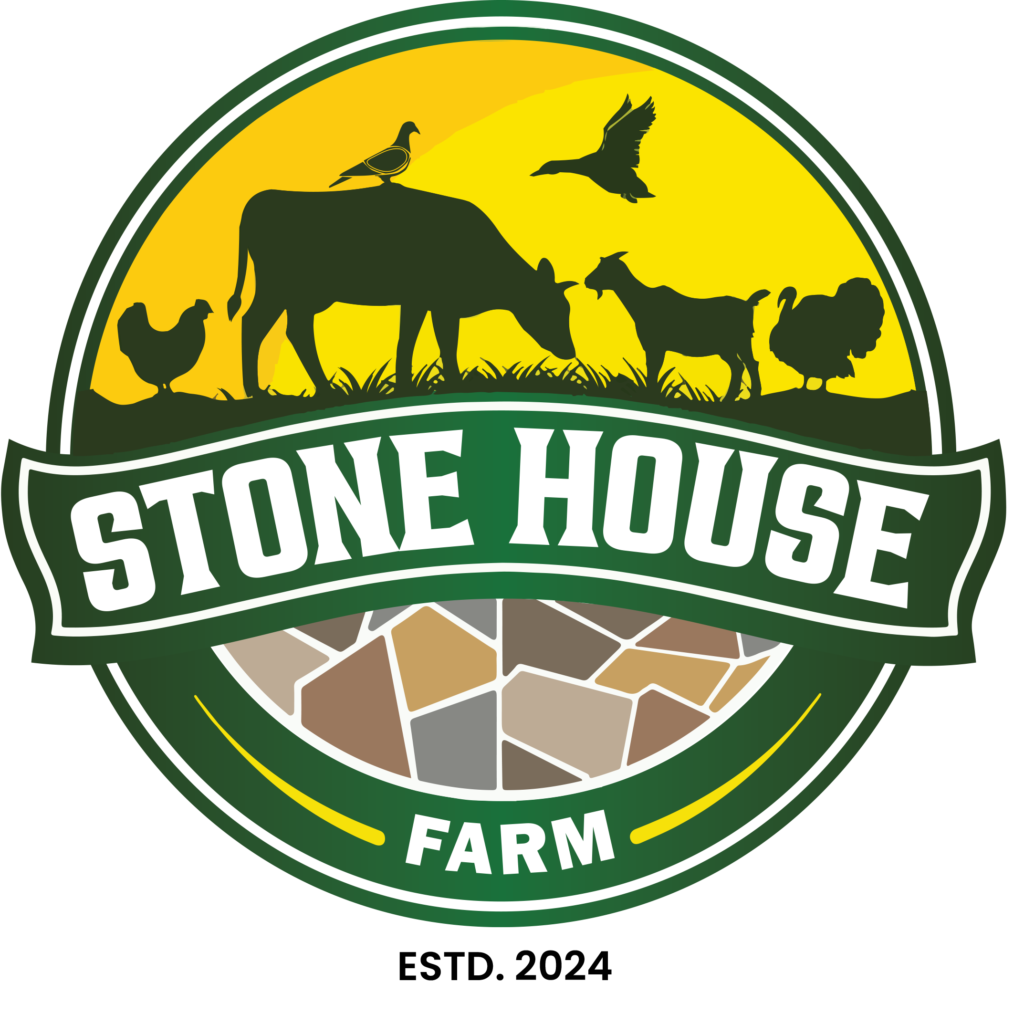Why we have different types of poultry on our farm in Uganda
We raise various types of Poultry on our small farm, including chickens, ducks, Guinea fowls, pigeons, Geese, and turkeys. These birds play a crucial role in our farming operations, not only by providing a steady source of meat and eggs but also by significantly contributing to our income. The poultry sector creates job opportunities for two of our employees, supports industries like feed production in Iganga, and uplifts local village farmers in Busu village through mutual bird trading.
Chicken:
Chickens, the staple inhabitants of our small farm, are undeniably the most familiar poultry. We house a variety of local Ugandan breeds and some SASO layers, all serving diverse purposes from meat and eggs to ornamental value. Our cherished flock of chickens demands specialized care and nutrition to uphold their reliable egg production. As novice farmers, we appreciate the ease of rearing chickens, with the local breeds standing out for their adaptability and exceptional feed conversion rate, thus cementing their popularity.
Ducks:
Ducks have become a focal point on our modest farm, thanks to the myriad advantages these feathered creatures bring. Renowned for their adept foraging abilities, ducks thrive on a diet of insects, weeds, and algae found in water sources. This not only cuts down on feeding expenses but also serves as a natural form of pest control for our farm. In addition to their practical benefits, ducks are prized for their delectable meat, brimming with vital nutrients. Although duck egg production falls short of that of chickens, the unique flavor and nutritional quality of duck eggs have earned them a dedicated fan base among consumers.
Turkeys:
Turkeys play a significant role in our farm’s poultry setting, valued primarily for their delicious meat. Setting them apart from chickens, turkeys boast a larger size and offer lean, tender meat with a unique flavor that caters to a wide audience. In addition to their meat production, we keep turkeys on our farm for their ornamental value, carefully selecting from various breeds. Raising turkeys demands meticulous attention due to their sensitivity to environmental factors and susceptibility to diseases. Nevertheless, the premium price and prestigious reputation of their meat often make the extra effort worthwhile.
The Guard Geese as a Watchdogs
Geese are essential protectors on our farm, ensuring the safety of their flockmates, young, and territory. Their vigilant nature allows them to alert us to any unusual activities or disturbances with their distinctive honk. Ready to defend their fellow geese, ducks, and chickens from various threats, including hawks, snakes, and even human trespassers, geese serve as valuable guardians. Although larger predators like dogs may overpower them, geese act as reliable sentinels, warning farmers of potential risks with their vigilant calls.
Guinea fowl:
Guinea fowl have proven to be a delightful addition to our stone house farm. These highly sociable birds are closely related to chickens but come with unique requirements and play a distinct role on our farm. While some may find them noisy and overly assertive, the benefits they bring to the farm are truly remarkable. One important aspect concerning Guineas is their low-maintenance nature coupled with exceptional pest control capabilities. With a penchant for scouring the farm in search of beetles, ticks, and ants, our flock freely roams the pastures. At the slightest sign of a predator, it is the vigilant guinea that takes the lead in raising the alarm, alerting the others to the potential threat. Their sharp cries ring out as they swiftly navigate the farm, seeking shelter from impending danger.
They also lay gees which are nice to eat and we sell them to generate income fo rthe farm.
Vulturine Guinea Fowl-Birds with Personality
The birds on our farm are full of life and a joy to observe. Found in desert regions with tall grass, scrub patches, and some tree cover in the wild, they roam around in search of grubs and insects to snack on. These birds prefer sticking close to trees, using the branches and foliage as camouflage if they feel threatened.
Similar to other guinea fowl, they choose to roost in tree branches and opt to run rather than fly when they sense danger. Their distinctive loud call, a chink-chink-chink noise, can be quite noisy if they feel disturbed in their roost at night. This species is not as commonly found in captivity in Uganda as other guinea fowl types due to their higher cost.
Contrary to their Kenyan counterparts at Stone House Farm, Vulturine guinea fowl have a different temperament. They are less interactive and tend to keep to themselves.
The Benefits of Different Poultry Types on our farm
Each type of poultry at Stone house farm brings its own unique benefits. Chickens, known for their quick growth and high meat production, are a favorite in Busu village and Ugandan cuisine. Ducks, with their efficient foraging skills, help keep pests at bay. Turkeys provide top-quality meat and can be quite lucrative. This variety not only caters to different consumer tastes but also diversifies our farm’s income sources, making it more resilient overall. Additionally, they play a role in our efforts to create a mixed farm with ornamental varieties.
